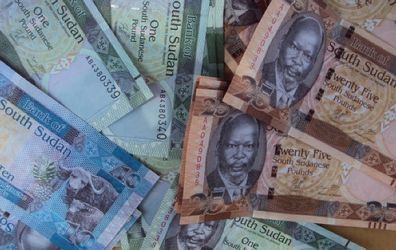S. Sudan’s central bank reverses decision on devaluing currency
November 13, 2013 (JUBA) – The South Sudan Central Bank on Wednesday reversed an earlier decision devaluing the South Sudanese pounds (SSP) by up to 35% against the US dollar.

“The parliament and other relevant institutions of the government have expressed fear that our decision should be reserved. They want the previous rate put back,’’ said an official who spoke to Sudan Tribune on condition of anonymity.
The official explained the reason for the reversal of the devaluation as thus: ‘‘This is because of the public outcry the decision has generated. So we have considered these views.’’
The official further said the bank will issue a circular communicating the reversal of its earlier decision.
In explaining reasons for the devaluation, the bank had said it was a reformatory measure aimed at achieving price stability in a country that heavily depends on oil exports.
The devaluation, the Central bank further explained, was a short term measure to create more reliable access to foreign currency by the public and the business community.
However on Wednesday lawmakers said the decision of the bank had led to a rise in consumer prices as well as commodities such as fuel, water and other imported commodities.
James Lual, a member of the national parliament from Warrap state representing Gogrial West said the devaluation, if not reversed, could have had a negative effect on the economy.
“The action of the central bank will have high social and political consequences. Most of our assets have already lost considerable value over the past days by more than 60%. Consumer prices are already increasing rapidly and by introducing these measures again, it means you are adding more fuel,’’ said James Lual borrowing from the common idiom ‘‘adding fuel into the fire.’’
Lual was one of the legislators who swiftly reacted to the decision by the Central Bank with a motion summoning the minister of finance, Aggrey Tisa Sabuni and the governor of the central bank, Kornelio Koryom Mayiik.
Deputy Speaker of parliament, Mark Nyipuoc, said the constitutional permits parliament to summon any officials with the exception to appear before it with the exception of the President.
(ST)
